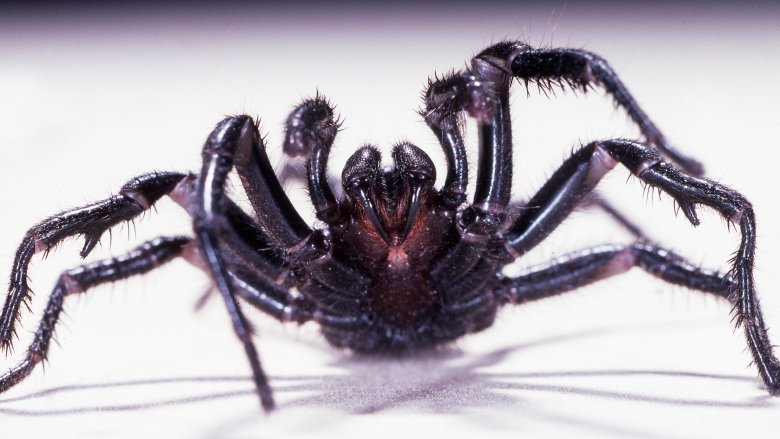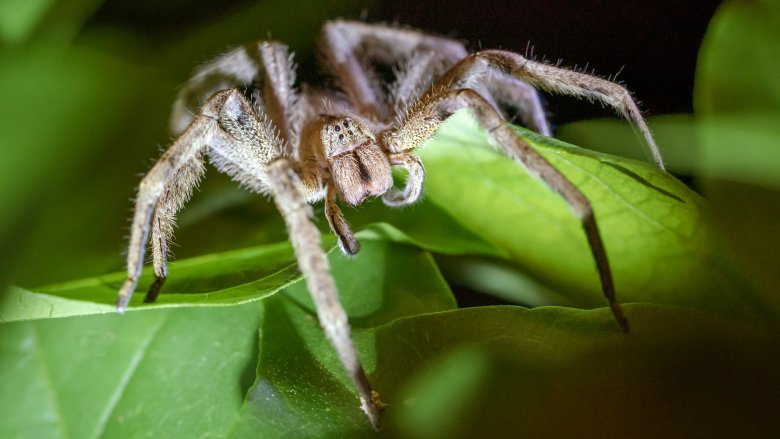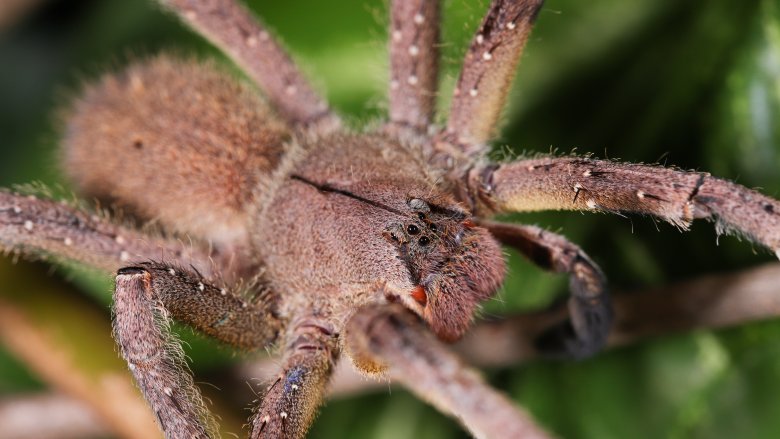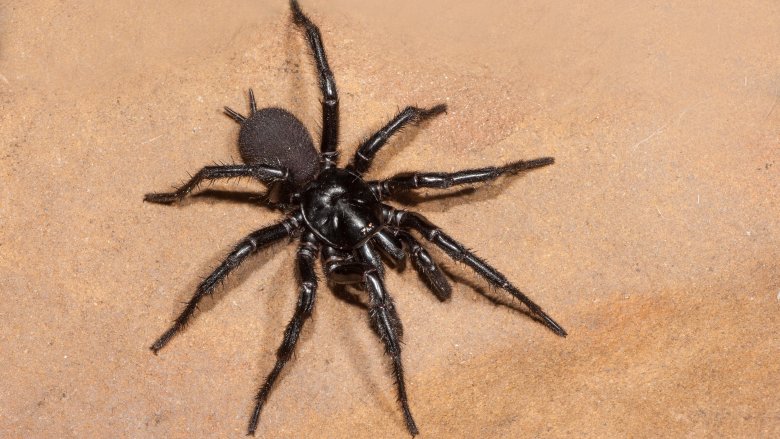What Is The Deadliest Spider In The World?
The itsy-bitsy spider crawled up your trembling leg. Down rolled your tears as you just screamed and begged. Then came a bite and venom up your veins. And the itsy-bitsy spider has claimed a life again. Before you go singing that little ditty to your kids at night, keep in mind that most spider bites won't kill you. According to Britannica, only an itsy-bitsy portion of the world's more than 43,000 known spider species pose a danger to humans. In fact, fewer than 30 species have ever killed a human. Which bites have the best chance of making you bite the dust? Let's find out.
The controversy over deadliest spider
Britannica lists nine of the most lethal arachnids on the planet. Among them are the usual suspects, including the brown recluse and the black widow. But identifying the Keyser Soze of spider bites is a bit tricky. Number 8 on Britannica's list is the Brazilian wandering spider, "considered to be the deadliest of all the world's spiders." However, number one on that same list is the Sydney funnel-web spider, which Australian Geographic describes as the undisputed title holder in the deadly arachnid rankings. According to How Stuff Works, the Sydney funnel-web is the most dangerous with the Brazilian wanderer coming in second but notes that the Guinness Book of World Records ranked the Brazilian wanderer at number one.
The Brazilian wandering spider might be the deadliest
Rather than having the arachnids perform a bite-off off to see how many lives they can end within a specific time limit, it seems more sensible to discuss both the Brazilian wanderer and the Sydney funnel-web. Live Science writes that "there are eight species of Brazilian wandering spider, all of which can be found in Brazil." (So they obviously don't wander very far from home.) Their bite packs "a complex cocktail of toxins, proteins, and peptides" that can cause "a severe burning pain," perspiration, vertigo, blurred vision, an elevated or decreased heart rate, spikes or drops in blood pressure, and hypothermia. The bite also causes "a long, painful erection in men," so dudes can die happy and unhappy at the same time.
Luckily for humans, Brazilian wanderers rarely go in for the kill. A 2008 study determined that only 2.3 percent of bites from Brazilian wanderers needed to be treated with antivenom because the spiders inject venom sparingly. They aren't being merciful, though. Arachnologist Jo-Anne Nina Sewlal explained, "It is unlikely that the spider would inject all of its venom into you, as this venom is not only needed as a means of defense but to immobilize prey."
Because it takes time and energy to replenish venom, if the spider used its whole load on you, it would be vulnerable to would-be predators and unable to hunt the way it wants. So unless you come across an especially hungry Brazilian wanderer, it probably won't bother to envenom you very much. Not because the spider is nice but because you're just not worth it. Ouch. Maybe the burning pain people feel when a Brazilian wanderer bites them is just the sting of rejection.
The Sydney funnel-web spider wants the title of deadliest, too
The Sydney funnel-web spider doesn't inject you with Cialis or anything so entertaining. The deadliest of Australia's 35 species of funnel-web, the Sydney variety delivers a nasty neurotoxin which paralyses invertebrates but causes human neurons to fire continually. A bite might cause your heart to race and your blood pressure to rise and could kill you within 15 minutes. In case that's not enough to send you into an arachnophobic frenzy, a funnel-web's fangs can puncture fingernails, and these spiders are inclined to hide in your shoes or house when seeking shelter.
A total of 13 people have died at the fangs of the Sydney funnel-web. That body count might even higher had experts not developed an antivenom in 1981. Unfortunately, keeping the supply stocked is a tall order. It takes roughly 70 milkings (yes, people milk spiders) to acquire enough venom droplets to produce antivenom. Further complicating matters, a female's life span may stretch 20 years while males kick the bucket after about four years and "can only be sexed at two."
Luckily, antivenom isn't your only defense against funnel-webs. While the venom wreaks havoc on primates by virtue of an evolutionary accident, dogs, cats, and birds all built up an immunity. According to Ranger Mick from the Australian Reptile Park, if Sydney funnel-webs think there's no place like your home, you should invest in chickens, which will "gobble them up quite happily."



